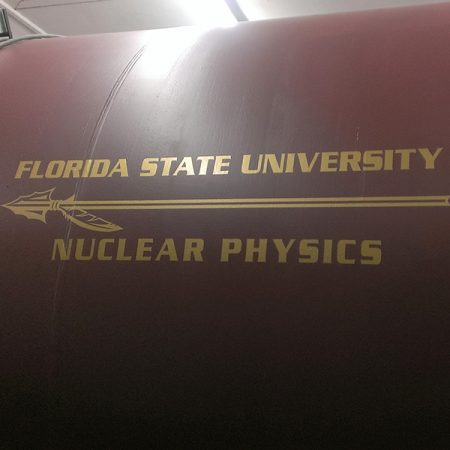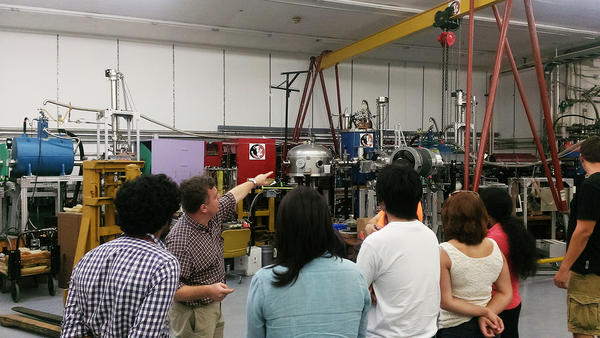
When someone says the word “exotic” most people probably conjure up visions of lush tropical islands and expensive getaways. But for 40 students visiting Florida State University this week, the “exotic” in their vacation is more about learning the techniques to study stars rather than staring at them from an island beach.
These graduate and undergraduate students, culled from the nation’s best and on track to be the world’s future nuclear physicists, are participating in the week-long Exotic Beam Summer School 2015 (EBSS). The EBSS introduces students and young researchers to the various facets of the science of exotic nuclei including nuclear structure, nuclear astrophysics, fundamental interactions and the application of nuclear science and technology in the modern world.
Sponsored by a variety of federal agencies and research universities, including FSU, this is the first time in its 14-year-history the exclusive program is being hosted by a university laboratory.
“FSU has always had a very high-level physics program, both from an educational and research standpoint,” said FSU Physics Professor Ingo Wiedenhöver. “Being the first university lab to host this school is quite an honor, and I think it speaks volumes for how big of a player we are in the nation’s nuclear science agenda.”
Forty graduate and undergraduate students, culled from the nation’s best and on track to be the world’s future nuclear physicists, are participating in the week-long Exotic Beam Summer School 2015 (EBSS) at Florida State.
The students spend six straight days participating in experiments and learning alongside 13 expert scientists from all over the country. In one such experiment, students look on as a student volunteer from the group cranks up the power on FSU’s John D. Fox Superconducting Linear Accelerator as Wiedenhöver explains what is happening inside the machine.

Forty graduate and undergraduate students, culled from the nation’s best and on track to be the world’s future nuclear physicists, are participating in the week-long Exotic Beam Summer School 2015 (EBSS) at Florida State.
“This is a very hands-on experience,” Wiedenhöver said. “We don’t just lecture these students, we put them in front of the equipment, let them operate it, and explain what is going on. That’s the beauty of this school and why it is so competitive to get into it.”
FSU was chosen as the first university to host EBSS based on its membership in the Association for Research at University Nuclear Accelerators (ARUNA), a group of 10 universities helping to push the nation’s nuclear science agenda forward.
“This summer school is a major pipeline for the creation of the nuclear engineers and scientists we will need to create new discoveries and further our understanding of the universe,” Wiedenhöver said. “It all starts in university labs and FSU happens to have one of the best in the country.”




